The image that established contemporary artist Shen Jingdong’s “hero” series created is an image of the soldiers with certain identity.
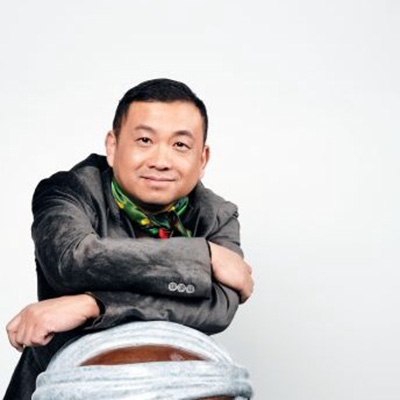
‘I think that acceptance of ideas contained in my works is a process of a commodity being accepted by consumers. It takes time. At first I meant to present myself as a hero, and then I broadened themes of my works. By my endeavor, my heroes are being accepted by the public. This means my ambition is being fulfilled. The image of an ordinary person like me will be passed down as a hero. A hundred years later, if my work still exists, people will ask who the person is.’ – Shen Jingdong
WHAT’S IN A NAME? I was born in 1965, just before the Cultural Revolution, so my father named me “respecting Mao” – Dong is for Mao Zedong. That was in Nanjing. My father was an art teacher and my mother taught at a primary school. I have an older sister and a younger brother. I painted the three of us last year from an old photo. Actually, many of my paintings refer to my memories. There’s a big relationship between my childhood and my works. I think many of my peers like to paint because of our childhood memories. I guess that’s where we find inspiration and enlightenment.
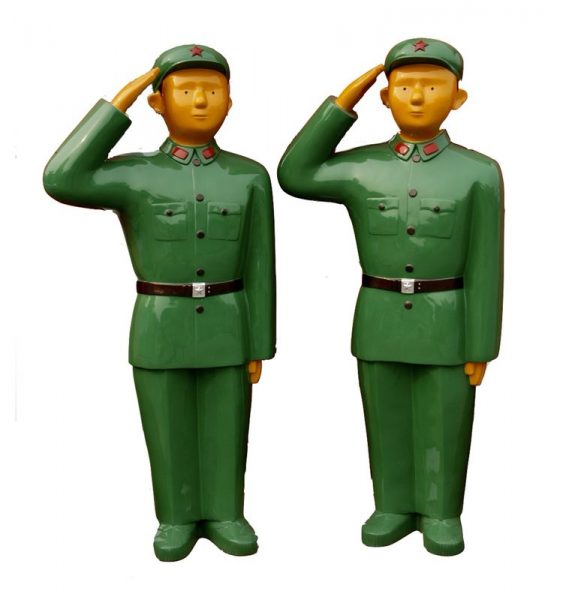
DRAWING ATTENTION When I was a child, I was always the thinnest, weakest one. I’m still a small man, I wish I were taller. It was obvious my personality was rather shy. I didn’t talk a lot. The other kids in the neighbourhood liked to fight but my father protected me from that. When my father was seven, he witnessed the slaughter in Nanjing by the Japanese (in 1937). He always talked about that experience – he still does. He’s 84 and he’s planning to write his memoirs about that time. He made me stay at home with my sketchbook, so I started painting at five or six. I was always praised and got attention for it.
ARMED RESPONSE We were brought up in an environment of propaganda. My father did propaganda paintings, too. He painted portraits of Mao and slogans, but my parents tried to be emotionless about the Cultural Revolution. Later, I went to study at the Nanjing Academy of Art and after graduation, a friend came to me about a vacancy in the military. They had different sections, and I joined the battlefront art troupe of the Political Department of the Nanjing Military Region. At that time, it was really the best option, a rare opportunity. My superior asked if I was strong enough and I said, “No problem!”
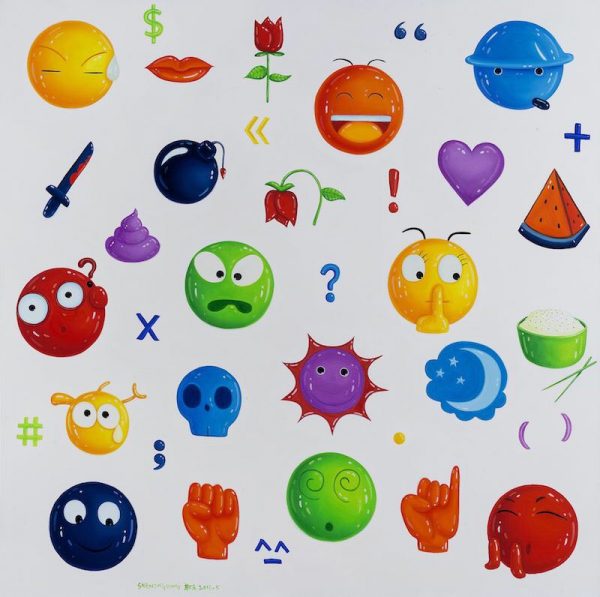
MILITARY MANOEUVRES I was in the military for 18 years. Yes, I’ve fired a gun. Every year, I needed to do training, you know, warcraft, and so then we fired guns. Quite fun! But my main work in the military was to paint the backgrounds for stage (shows), according to what the drama needed, maybe mountains or villages. I was also involved in filming dramas and making props. While I was full-time in the military, I was also doing my own painting. When I decided to become an artist, I had no money – just a small pension – but I wasn’t frightened. I was quite sure about it.
UNIFORM APPROACH Like many artists, I spent a long time experimenting – with video, charcoal and sculpture – to find a way to convey my message. That’s why, for a short period, I did erotic paintings: they’re based on Chinese erotic porcelain sculpture and it was the traditional elements that attracted me. It’s important to find an icon and that helped me, it lead to the Hero series. I got my inspiration from a photo of me in army uniform. The idea was simple: I just wanted to show myself as a hero. You can see the resemblance to my face. I’ve never done anything heroic, but in the Mao era everyone had strong respect for someone like Lei Feng (a young soldier characterised as having been devoted to the Communist Party). I know people nowadays tease Lei Feng’s memory. There’s always a change between the generations.
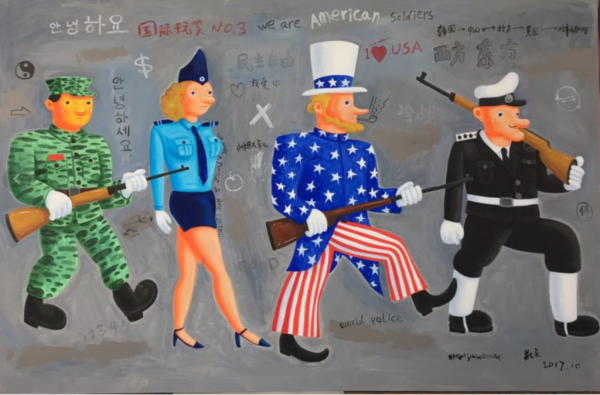
BLASTS FROM THE PAST I’m still quite close to my friends from the military. At the beginning, not everyone liked the way I painted the soldiers. They thought it was strange. In the past, soldiers were represented seriously but mine are more relaxed, they have a sense of humour. Later, people started to accept my interpretation. I don’t intend to be sarcastic or political, I just want to show this other side of humanity.
CAPITAL GAINS I live in Beijing. It’s the main cultural and international hub so I had to leave Nanjing. I’ve had three studios in Beijing and (actress) Zhang Ziyi has been to all three; she really likes my work. When I was in the military I wasn’t allowed to go abroad. In 2007, I had my first exhibition in Hong Kong and because I was still in the army, I had to get approval from the highest level. It was tough but it was important. I’ve been travelling intensively since then. It’s eye-opening but it also confirms that I want to stick to my own subject matter and beliefs.

LIFE I got married when I was in the army. We had a son, then we divorced in 2002. My son’s 16 now, he’s at boarding school but he’s just been accepted into art school in Beijing. After that, he can go to America or the UK for education. I hope he can travel abroad and see more, just like me.
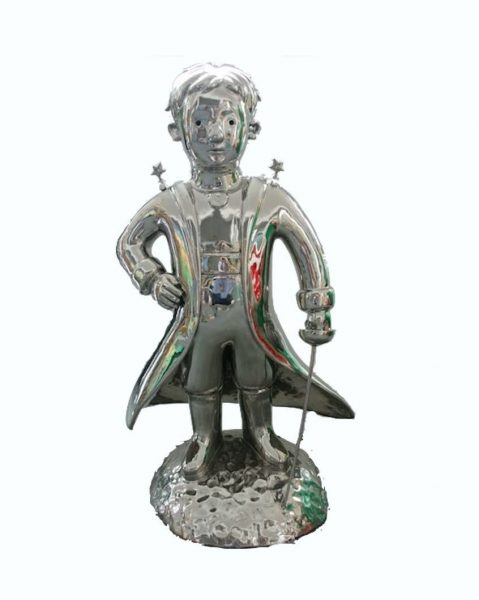
MAN IN THE MIRROR I wish I was like the other subject I paint, the Petit Prince. I want to be naive. In the book, he paints a snake that swallows an elephant but the adults have a different interpretation; they think it’s a hat and the Little Prince says the adult world is too complicated. The world is definitely not flawless, you can see famine, war and disaster, but I want to view it in a simplified way, Actually, my work is always relevant to my way of thinking.
